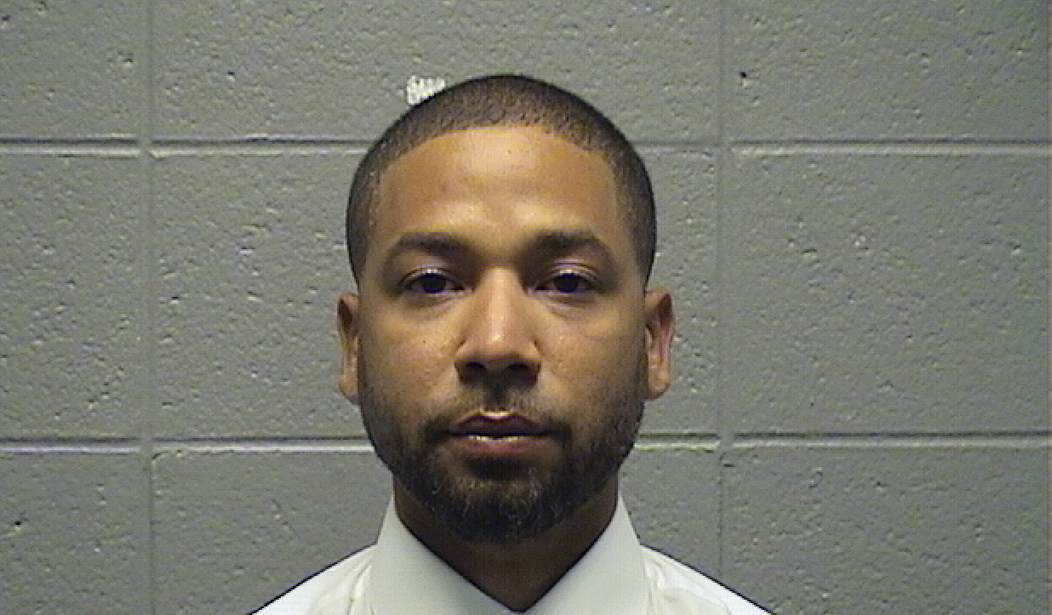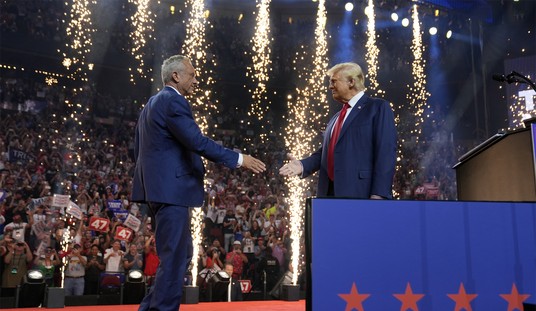Is this vindication for Jussie Smollett? He and his attorneys will certainly paint this decision that way, but don't buy it for a moment.
In fact, Smollett and his attorneys never raised the question of guilt or innocence in his appeal over Smollett's hate-crime hoax. Instead, they wisely stuck to technical issues in the second prosecution -- and that's all that the state supreme court in Illinois addressed:
The conviction against actor Jussie Smollett for falsely reporting a hate crime to Chicago police in 2019 has been overturned by the Illinois Supreme Court over prosecutorial issues.
Smollett's case was reviewed by the state high court, which ruled Thursday that the former "Empire" actor should not have been charged after he entered a non-prosecution agreement with the Cook County State Attorney's Office.
Actually, even Smollett's team stops short of claiming that the hoax was anything else but a series of lies. They are instead claiming that the second prosecution was "vindictive" instead:
Breaking: Illinois supreme court reverses Smollett conviction. His atty tells Fox:
— Matt Finn (@MattFinnFNC) November 21, 2024
“This was not a prosecution based on facts, rather it was a vindictive persecution and such a proceeding has no place in our criminal justice system.
Ultimately, we are pleased that the rule…
Ultimately, we are pleased that the rule of law was the big winner today.
We are thankful to the Illinois Supreme Court for restoring order to Illinois’ criminal law jurisprudence.”
The court ruling makes clear the limited scope of its decision. Smollett and his team didn't even raise the issue of innocence, although that's not unusual on appeals; appellate courts generally defer to the trial court on those matters unless extraordinary circumstances require an intervention. Smollett's team raised five technical issues on appeal, but the court decided the first was enough to toss the conviction:
Defendant makes the following five arguments on appeal: (1) he entered into a nonprosecution agreement with the State that should be enforced, (2) double jeopardy considerations precluded the second prosecution because he had already been punished for these same offenses, (3) the trial court erred in denying his Rule 412 motion to compel the OSP to disclose to the court for in-camera review its notes from interviews with two key witnesses (see Ill. S. Ct. R. 412 (eff. Mar. 1, 2001)), (4) his sentence was excessive and influenced by improper aggravating factors, and (5) the restitution order was in error because of problems of proof and because the City of Chicago and the Chicago Police Department cannot be considered “victims” under the applicable statute. We agree with defendant’s first contention and therefore do not address the others.
The ruling only makes two references to claims of innocence, and those both relate to a public statement by Smollett after the diversion agreement was executed. Smollett had admitted to guilt in the court proceeding, however, and had forfeited his $10,000 bail bond as agreed in the negotiation. Smollettt also had already performed the minimal community-service obligation by the time he'd been reindicted. That's enough to make the state stick to its agreement, the court ruled, whether or not the state later regretted it:
Because the charges were dismissed in exchange for defendant’s community service and forfeiture of his bail bond and because defendant fully performed his end of the agreement, the State is bound by the agreement.
Prosecutors argued that Smollett had never actually been convicted at all. The original diversion agreement dropped the charges in exchange for the allocution but technically didn't result in a conviction. The trial court saw it that way at the time, too, ruling that the case had been dropped rather than actually adjudicated. That's too cute by half, the supreme court decided:
Because this case involves an agreement to dismiss charges in exchange for defendant doing something and defendant did what the agreement required, Starks and Stapinksi provide the relevant precedent. Again, Starks involved an alleged agreement between the prosecution and the defendant whereby the State would dismiss the charges if the defendant took and passed a polygraph examination. This court stated that, “[i]f there was an agreement as alleged, and if Starks fulfilled his part of it, then the State must fulfill its part.” Starks, 106 Ill. 2d at 452. Stapinski involved a situation where the State agreed not to bring charges against the defendant if he assisted them in a drug investigation. This court held that the principle for enforcing agreements such as this is the due process clause of the fourteenth amendment and that, when a defendant acted to his detriment in reliance on an agreement with the State, the State is required to honor the agreement as a matter of fair conduct. Stapinski, 2015 IL 118278, ¶ 48. Here, we have a fully executed agreement between defendant and the State. Both parties performed their part of the agreement, and the trial court enforced it. To allow the State to renege on the deal and bring new charges would be fundamentally unfair and offend basic notions of due process.
It's tough to argue with that reasoning, frankly. As much as Smollett deserved to get convicted in court, the principles of double jeopardy and honest dealing by states in legal affairs are more important. Smollett never should have gotten that deal in the first place, but that's an issue for voters to take up with the DA equivalent in Chicago. It shouldn't give leave for a second prosecution, however justified, once a defendant meets the terms of an agreement signed by prosecutors.
The court did acknowledge the perception of injustice in that deal, but argued that these principles need protection:
We are aware that this case has generated significant public interest and that many people were dissatisfied with the resolution of the original case and believed it to be unjust. Nevertheless, what would be more unjust than the resolution of any one criminal case would be a holding from this court that the State was not bound to honor agreements upon which people have detrimentally relied.
Indeed -- that seems like wisdom. Everyone knows that Smollett conducted a hoax, and nothing in this ruling negates that conclusion. But Jussie Smollett matters a lot less than ensuring that the prosecutorial powers of government operate within constitutional limits. And while this is a technicality, double jeopardy is a big technicality that benefits us all.








Join the conversation as a VIP Member